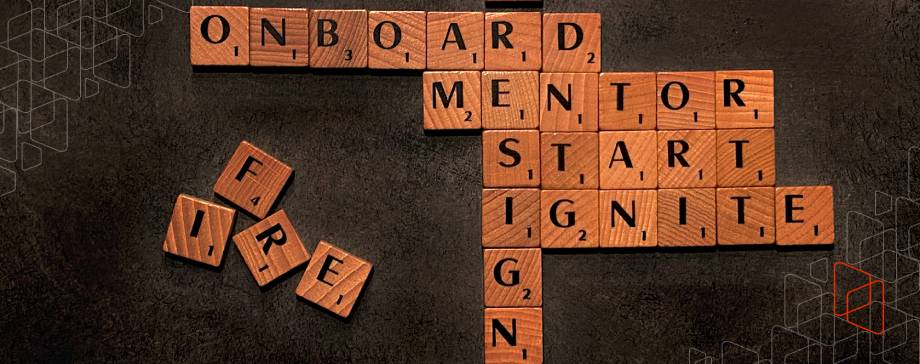Laura Iñiguez, Content Manager at Hirebook
Laura is a content and social media strategist with deep experience in Employee Engagement, People Management, and Culture. She works with Hirebook to bring their innovative best practices to life through content, videos, and webinars seen by thousands around the globe.
Pub: March 10 2022
Upd: May 23 2023
Culture is one of the key drivers of organization success - yet it is considered a nebulous mix of ideas, actions, and events. On the surface, culture appears to be unmeasurable and therefore unmanageable, but in fact, there are a few well-defined inputs to help you create a culture of engagement that leads to success!
In every workplace, the culture of its teams has a huge influence on the environment and way of working. Not every team culture is the same, therefore what works for some organizations might not work for yours. But there are key elements that build the foundation of every great team culture. Discovering how to build a great and healthy team culture will not only improve your chances of success but will also help you gain a competitive advantage as an employer. If you’re interested in learning more about the characteristics of such an important organizational element and how to develop it, we encourage you to keep on reading.
What is Team Culture & Why is it Important?
By the most basic definition, team culture is made up of the values, beliefs, behaviors, and attitudes shared by a team. It is basically how people work in tandem towards a common goal and how they treat each other. Just like culture within a society, team culture is supported by its individuals.
In general, culture is a difficult concept to define, and many have come up with different pointers about what team culture actually means, but in the end, it relies on the singular dynamic a group of people has, and even within one company there can be different variants of its culture throughout its teams.
Even though having a solid concept of culture is not easy, many companies use their sense of culture as a catch to recruit talented individuals. The problem lies in what recruiters refer to as ‘culture’ when posting job listings or going through a hiring/onboarding process. We often will hear things along the lines of “We have a great company culture, with over-the-top facilities including a foosball table, a lounge area, and free coffee all day long”... but the thing is, culture is not palpable. Therefore, a foosball table and lounge chairs are not exactly what builds a culture, especially not when the people playing at that table and lounging while sipping coffee are rude, sexist, racist, and other toxic things that definitely harm an organization’s culture.
Good and strong team culture is built when people support each other, share their knowledge, and genuinely work together for a common goal, that ultimately leads to the common good. This is why good team culture is so important, because when people know they can trust and rely on their colleagues, they achieve great things, avoid damaging behaviors, and create an ambiance of harmony. Benefiting not only the growth of a company but their personal and professional development.
In organizations where culture is feeble, leaders have to implement strict rules, processes, and other guidelines in order to have a somewhat decent environment that allows employees to work as efficiently as a toxic culture can allow. But when culture is strong, a team can work autonomously and effectively with little to no supervision, and best of all, usually getting great outcomes.
How to Identify a Strong Team Culture?
In general, every culture will be unique, even within the same organization and team structure. Just by the mere fact that team members are individuals with different personalities, a team can develop a unique way of behaving as a group. But there should always be a foundation for the entire company to live up to. You can run a simple evaluation by answering the following questions:
- Are people committed to the job? Do they believe in what they are doing and trying to achieve?
- Do people balance their own conditions, showing a selfless attitude, for the sake of achieving their goals?
- Are people in agreement with how the company does things? Do they allow themselves to be directed to accomplish goals?
- Is everyone honest?
The answers to these questions can give you a proper assessment of where your workplace culture stands and what it is in need of improvement. A strong team culture consists of several employee engagement components like:
- Great Leaders - Employees nowadays no longer respond to commands, we’ve come a long way and we’ve learned that asking our employees to do something just for the sake of doing it doesn’t cut it anymore, and honestly, it doesn’t deliver the greatest results. Employees should find their leaders inspiring, and feel motivated to make them proud. This is why we often hear the phrase “lead by example”, and that couldn’t be more true! Great leaders fuel the success of their team, and subsequently, the success of the company.
- Low Turnover - The more engaged employees you have, the less turnover your company will experience. 63% of companies say that is harder to retain employees than hiring them, but it’s way more expensive to lose employees; plus, engaged teams generate 21% more profit than their disengaged counterparts. So, it’s safe to say that making an effort towards building a good team culture pays off.
- Conflict Resolution - A strong team culture promotes empathy and rapport among its colleagues, which encourages problem-solving techniques and effective communication to reduce conflict.
- Harmonious Environment - Culture has a big impact on the environment and how employees perform their duties. A good team culture has employees upholding the company’s values and behavioral policies, leading them to work with respect and support towards each other, generating a nice environment where employees work happy and committed to achieving the organization’s goals.
How do You Build a Strong Culture?
Developing a great team culture takes time, but it is incredibly rewarding. It doesn’t depend on establishing one goal and working towards it, it’s more about providing a purpose that gives meaning to your organization and, especially, to the work that your team is doing. In fact, several studies reveal that over 50% of CEOs say that corporate culture influences and improves productivity, creativity, profitability, company value, and growth rate. This only tells us that, even when building a great team culture takes some time, the long-term benefits are incredibly worth it.
1. Create a Shared Understanding of Why the Job is Important
Building the definition of what your company is all about is not something to take lightly, as this will be the statement your company will live by every day for years to come. You want to inspire confidence and have a clear vision of why you and your business matter.
Without a clear mission statement, your company is basically asking for customers to blindly trust you and give you their money.
To create your mission, think about what differentiates you from your competitors, what do you aim for? What can you offer potential customers that’ll make a difference in their lives or businesses? How can you make an impact on your field?
2. Define your Core Values
Your values are also a big part of what your organization is all about, they constitute the elements of your company’s personality and they’re something your employees will live by while working. Your company values should be confectioned to your company’s mission, you cannot say you’re an empathetic or open company if your mission expresses a close mindset or if your employees are not encouraged to comment on company matters.
Try to find 4 or 5 very important terms for you, like “communication” or “ethics”, and work your way down from each of them, this way you’ll make sure you cover your most important aspects. Keep in mind that your company values should also be aligned with the organization’s goals and strategies, expecting that by living these values your employees will help you achieve your objectives by achieving theirs.
You can also take a look at our “30 Powerful Words to Describe a Company: Define your Culture and Build your Brand” article to check which words resonate with you. Defining your values will propel your company in the right direction.
3. Prioritize Open and Honest Communication
Having a clearly defined mission statement and values, it’s time to make sure your employees, present, and future, know this information and act upon it every day. If your employees don’t know why they get out of bed every morning, they won’t give their best effort on the job and their efficiency will definitely be below average.
Honesty is incredibly important when it comes to working with a team, team members have to trust each other and be able to communicate openly and honestly to find the best solutions and work effectively together. To improve the process of communication, you can integrate a communications platform as a service and provide a seamless experience for your team.
Each team member must be committed to bringing their best, keeping a positive attitude. We know being completely positive all the time is not always possible, but if the rest of the team members maintain a positive energy, that will be contagious and helpful to those around them. As a leader, part of your job is to make your direct reports feel comfortable and safe. Let them know you’re there to support them and they will have your back as well. Making them feel like they are part of a great team will encourage them to build each other up.
4. Recognize those who Live up to Your Values
Make sure those employees that stand out are recognized. Some companies like to host annual “awards” and reward those employees who personify each value. This dynamic doesn’t have to be a one-day thing; the nominations could be held through a few weeks, and you can have your employees send out little tokens to those colleagues they consider that represent a different value. By doing so, you’ll be encouraging camaraderie and generating positive thoughts among your employees so that, in the end, everyone shares victory.
Setting your core values and mission is only half the battle, and it’s the easier half; the difficult part is to generate and model the behaviors you expect from your employees. The even trickier part is to inspire these behaviors as the company grows and the team expands.
The steps you take to demonstrate the things you value for the company are crucial to inspire those who work around you and encourage those behaviors. While you demonstrate how you live your company values, you will also build trust within your team and employees, no matter their hierarchy.
The culture of a company is the backbone of every process and department, it defines the personality of your organization and represents your values, and it also shows the importance you give to your employees and the people surrounding your company. We hope these guidelines help you out whether you’re starting to develop your startup company culture or need a little help with your existing one.

Photo by fauxels
- Relevant
- Recent
- Topics
- Archive
- April 2023 (1)
- March 2023 (1)
- June 2022 (1)
- May 2022 (3)
- April 2022 (3)
- March 2022 (5)
- February 2022 (2)
- January 2022 (3)
- December 2021 (3)
- November 2021 (4)
- October 2021 (5)
- September 2021 (8)
- August 2021 (7)
- July 2021 (2)
- June 2021 (3)
- May 2021 (5)
- April 2021 (8)
- March 2021 (4)
- February 2021 (3)
- January 2021 (3)
- December 2020 (6)
- November 2020 (9)
- October 2020 (1)
- September 2020 (5)
- August 2020 (4)
- July 2020 (1)
Discover More Hirebook Posts


.jpg)






